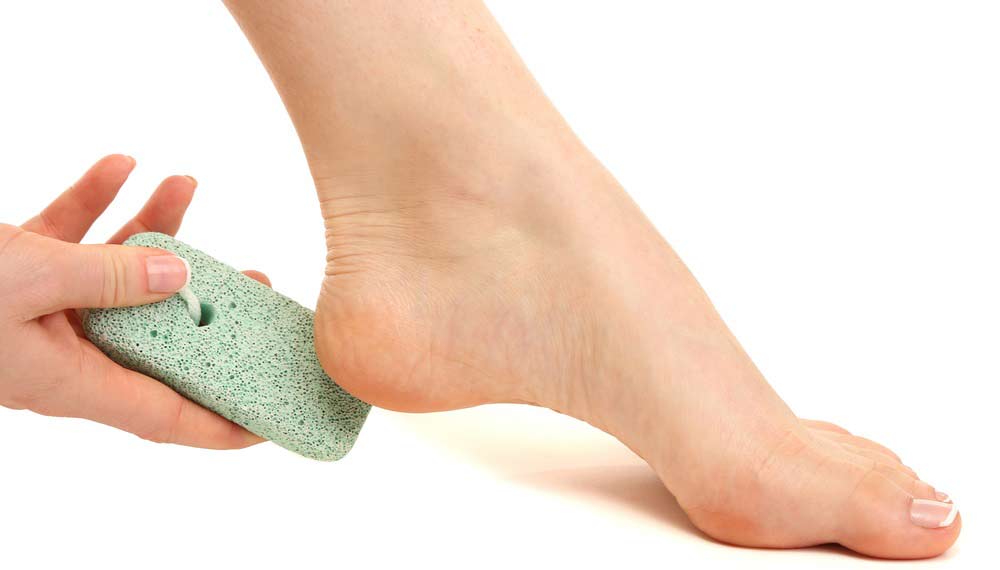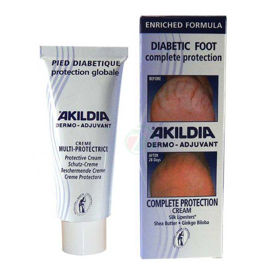The feet of each of us are exposed to various factors.

They are burdened by the pressure of the floor and shoes, high temperatures, humidity and poor breathability, as the skin that is enclosed in the shoe is harder to breathe. An additional risk factor that needs to be taken very seriously is diabetes. Patients need to pay a lot of attention to their feet, as they are more exposed to various complications due to their disease.
Compared to healthy people, diabetics are more susceptible to skin infections. These are relatively common in diabetics who have dry foot skin as fissures and ragades occur. Dehydration will be greater if diabetes is unregulated and accompanied by poor blood circulation. Neuroates are most often present. The patient has a weakened sense of touch, temperature and pain, and is prone to infections. It should be emphasized that infections are not a direct result of neuropathy, but rather occur due to the formation of wounds due to reduced sensitivity. Inflammation is very common, especially in the nail areas, because leukocytes, which otherwise allow the body to defend itself, lose their ability to destroy bacteria. If a wound is present, it will be difficult to heal, so it is urgent to seek medical help immediately.
In most cases, diabetics suffer from arteriosclerosis in addition to neuropathy. The patient has impaired blood flow due to narrowing of the arteries, which again poses an additional risk of infections. These can develop into gangrene, which is a very severe complication of diabetes that unfortunately most often leads to amputation of the foot or even the leg.
They cannot be ignored diabetics are also more susceptible to fungal diseases. They can be prevented by careful foot care. The skin between the toes should be clean and as dry as possible and cared for exclusively with products that are specially developed for the care of diabetic feet.
The cause of all the described complications is high sugar, so the diabetic must take care of regulated diabetes. By acting responsibly towards your health, it is possible to prevent problems before they occur. It is very important to wash your feet daily with warm water and mild soap. The body temperature of the water is suitable for hygiene. After washing, the feet should be wiped with a soft and clean towel, not forgetting the spaces between the toes. Nail trimming is sometimes better left to professionals, especially if the diabetic has poor eyesight. It is imperative to sharpen the sharp edges. The patient should have a thorough examination of the feet every day. Help yourself with glasses and a mirror.
In this way, he will notice changes such as abrasions, ulcers, wounds, blisters, fingerprints, signs of bacterial and fungal inflammation, and skin changes in a timely manner. The latter can be prevented by daily careful foot care. It is necessary to use foot saw , which is suitable for diabetics, and a cream (even better dermo-adjuvant) developed for the care of diabetic feet. It is necessary to take care of proper footwear , regularly change socks (clean every day) and use natural materials (wool, cotton). Shoes let every night disinfected with a spray , adapted for footwear, when shopping, natural materials should be chosen that allow the "breathing" of the feet. Proper size and comfort are important. It is especially important to emphasize that care alone will not be enough for the health of the feet. It must be combined with sufficient exercise in the fresh air, a healthy lifestyle, a proper diet and the abandonment of harmful habits. It is important to maintain a healthy body weight, and in addition to everything else, it is necessary to take care of regulated blood sugar.
Damjan Justinek, Ph.D. med., spec. int. med.
Romana Praprotnik, professional associate, medical pedicurist












 Facebook
Facebook
 Instagram
Instagram
 info@moja-lekarna.com
info@moja-lekarna.com

